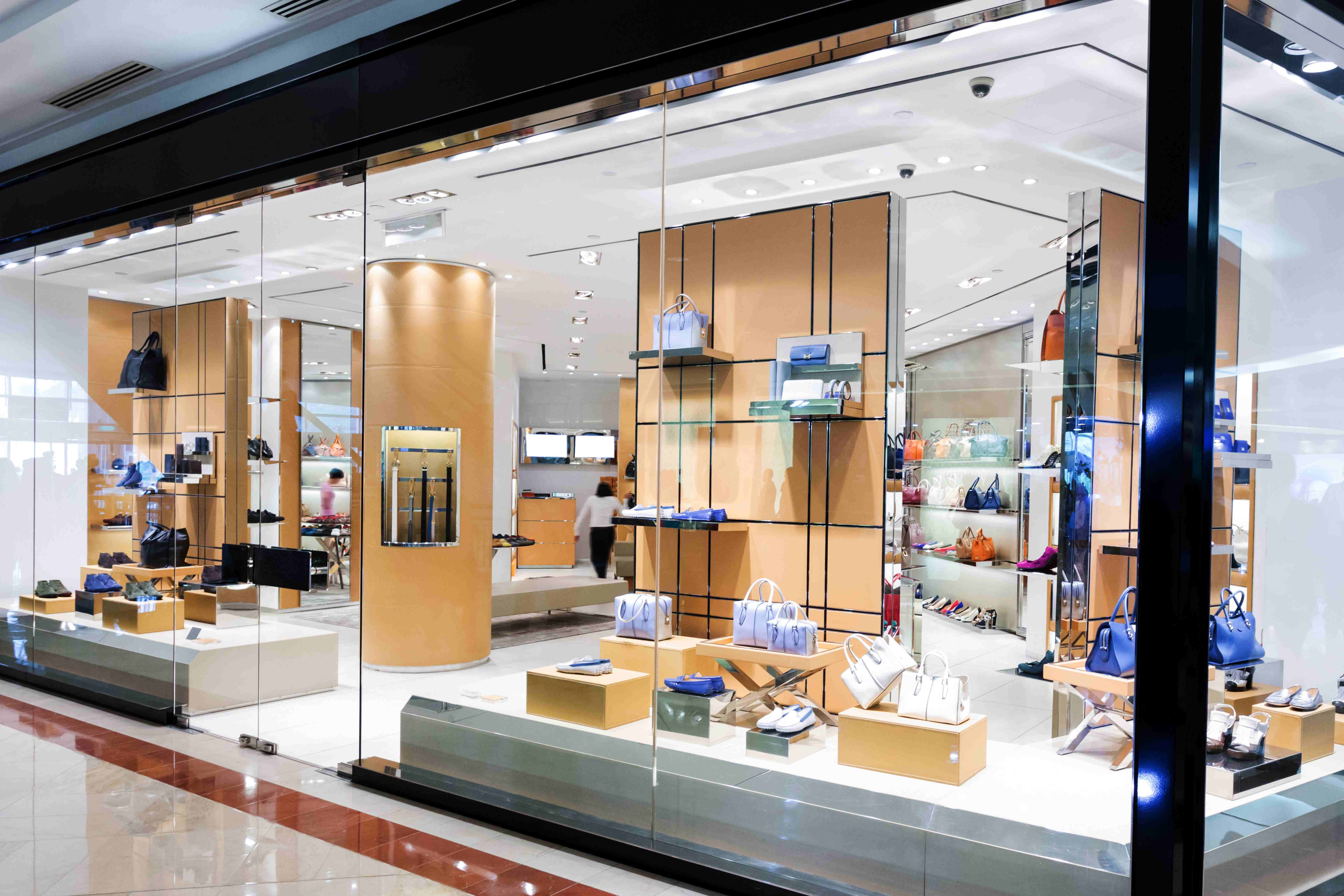In today’s retail landscape, consumers often begin their shopping journey online before visiting a physical store. With an increasing reliance on digital searches to find the best products and stores, Search Engine Optimization (SEO) has become a crucial strategy for retail businesses. Whether your goal is to increase foot traffic to your brick-and-mortar store or boost online sales, SEO can help you enhance your visibility and attract more customers.
This comprehensive guide will provide actionable SEO tips and insights into the latest trends that will help retail store owners optimize their online presence and drive more organic traffic.
Table of Contents
- Why SEO is Essential for Retail Stores
- Actionable SEO Tips for Retail Stores
- Latest SEO Trends for Retail Stores
- Conclusion
- About Don Hesh SEO
Why SEO is Essential for Retail Stores
In the competitive retail sector, SEO plays a pivotal role in helping your business stand out online. Whether customers are searching for a specific product or looking for nearby stores, a strong SEO strategy ensures your store appears in the top search results, ultimately leading to more clicks, foot traffic, and online purchases.
Key Benefits of SEO for Retail Stores:
- Increase online visibility: SEO helps your retail store rank higher on search engines, making it easier for potential customers to find your business.
- Drive more foot traffic: Local SEO can boost in-store visits by targeting local shoppers searching for your products.
- Enhance online sales: Optimized product pages can drive more conversions, helping you maximize your eCommerce efforts.
Actionable SEO Tips for Retail Stores
1. Conduct Keyword Research for Retail Products
Keyword research is the cornerstone of any SEO strategy. For retail stores, identifying the right keywords ensures your product pages and website content are aligned with what your target audience is searching for.
- Focus on product-specific keywords: Use tools like Google Keyword Planner or Ahrefs to find long-tail keywords related to your products. For example, instead of just “shoes,” target keywords like “women’s running shoes” or “best men’s leather shoes.”
- Incorporate transactional keywords: Include phrases like “buy,” “shop,” or “order” to attract users ready to make a purchase.
- Target seasonal keywords: Retail is highly influenced by seasons and holidays. Adjust your SEO strategy to target seasonal terms like “Christmas gifts,” “back-to-school supplies,” or “summer fashion trends.”
2. Optimize Product Pages for SEO
Product pages are the backbone of any retail website. Optimizing these pages ensures that they rank well on search engines and convert visitors into customers.
- Write unique product descriptions: Avoid copying manufacturer descriptions. Instead, create detailed, keyword-rich, and original product descriptions that speak to the benefits and features of each item.
- Optimize title tags and meta descriptions: Make sure your title tags include your main keywords and are compelling enough to encourage clicks. Meta descriptions should offer a brief yet enticing summary of the product.
- Add alt text to product images: Optimize product images with descriptive alt text that includes relevant keywords. This helps improve your ranking in image searches, which can drive traffic to your site.
- Use structured data: Implement schema markup for product pages to enhance rich snippets in search results. This can display additional information like price, reviews, and stock availability, increasing click-through rates.
3. Leverage Local SEO to Drive Foot Traffic
For retail stores with a physical location, local SEO is critical for attracting nearby customers.
- Claim your Google My Business (GMB) listing: Ensure your GMB profile is accurate and fully optimized with your business name, address, hours, contact information, and website link. This will boost your visibility in local search results and on Google Maps.
- Encourage customer reviews: Positive reviews not only build trust but also improve your local SEO ranking. Encourage happy customers to leave reviews on Google or Yelp.
- Include location-based keywords: Use keywords like “clothing store in [city]” or “buy electronics near me” to target local searches. Include your business location in titles, meta descriptions, and throughout your website content.
4. Create High-Quality Content Around Your Products
Content marketing is a powerful way to attract potential customers and improve SEO rankings. By providing valuable information about your products, you can build authority in your niche and enhance your store’s visibility.
- Write blogs on product-related topics: Create blog posts or articles on topics that are relevant to your products. For instance, if you sell skincare products, write about “Best skincare routines for different skin types” or “How to choose the right sunscreen.”
- Answer customer questions: Use your blog to answer frequently asked questions about your products. This not only provides valuable content but also targets long-tail keywords that customers are likely searching for.
- Use videos and infographics: Visual content can engage customers and improve SEO. Create product demonstration videos, how-to guides, or infographics to explain product benefits or trends.
5. Implement a Mobile-Friendly and Fast Website
With more consumers shopping on their smartphones, having a mobile-friendly and fast website is critical for both SEO and user experience.
- Use responsive design: Ensure that your website adapts to all devices, whether desktop, tablet, or smartphone. A responsive website not only improves user experience but also boosts SEO rankings, as Google prioritizes mobile-friendly sites.
- Improve site speed: A slow website can hurt your rankings and deter potential customers. Use tools like Google PageSpeed Insights to identify and fix performance issues that are slowing down your site.
- Optimize images: Compress images and ensure they load quickly to improve page speed. High-quality images that load fast are essential for product pages, especially in eCommerce.
Latest SEO Trends for Retail Stores
1. Visual Search Optimization
Visual search is gaining popularity in retail, allowing users to search for products using images rather than text. Platforms like Pinterest and Google Lens are leading this trend, making visual search a powerful tool for retailers.
- Optimize images for search: Ensure that product images are high-quality, properly labeled with alt text, and use descriptive file names.
- Use structured data: Structured data for images helps search engines better understand your content, which can enhance your visibility in visual search results.
2. Voice Search for Retail Stores
With the growing use of voice assistants like Alexa, Siri, and Google Assistant, optimizing for voice search is becoming essential for retailers.
- Focus on conversational keywords: Voice searches tend to be longer and more conversational than text searches. For example, instead of “buy shoes,” users may say, “Where can I buy affordable running shoes near me?”
- Create FAQ pages: Answer common customer questions in a natural and conversational tone to target voice search queries.
3. E-A-T (Expertise, Authority, Trustworthiness)
Google places great emphasis on E-A-T, especially for retail websites. Establishing your store’s credibility and trustworthiness is vital for SEO success.
- Showcase customer reviews and testimonials: Positive customer feedback boosts trust and signals authority to Google.
- Highlight certifications and awards: If your retail store has won awards or received certifications, prominently display them on your website.
- Provide accurate and up-to-date product information: Ensure that your product descriptions and details are correct and regularly updated.
Conclusion
Implementing effective SEO strategies is crucial for retail stores aiming to increase foot traffic and online sales. By conducting thorough keyword research, optimizing product pages, leveraging local SEO, and staying up to date with the latest trends like visual search and E-A-T, your retail store can stand out in a competitive market. The tips provided in this article will help you boost your visibility, attract more customers, and drive more sales.
About Don Hesh SEO
Don Hesh SEO is a leading SEO consultant and Google Ads consultant dedicated to helping businesses enhance their online presence and drive organic traffic. Our expertise in AI-driven SEO strategies ensures that your business stays ahead of the competition. Partner with SEO Sydney to leverage the latest AI technologies and achieve your SEO goals efficiently and effectively.



